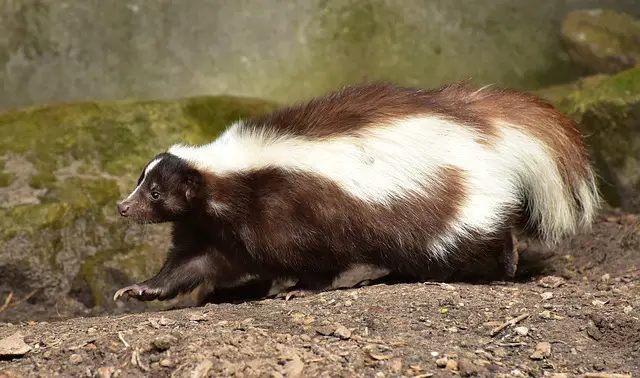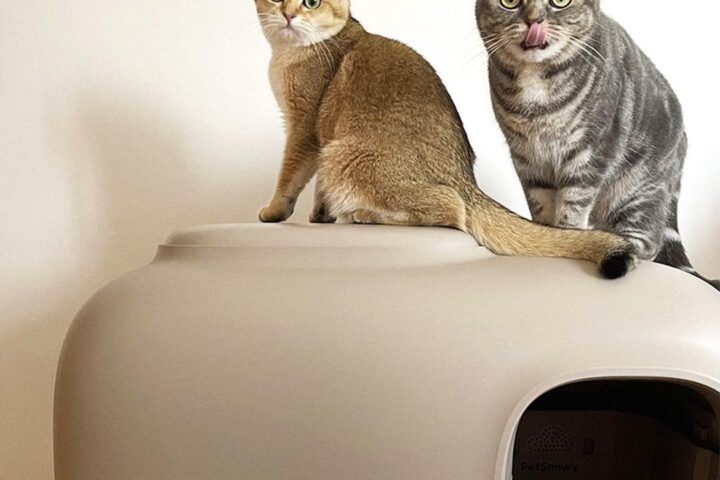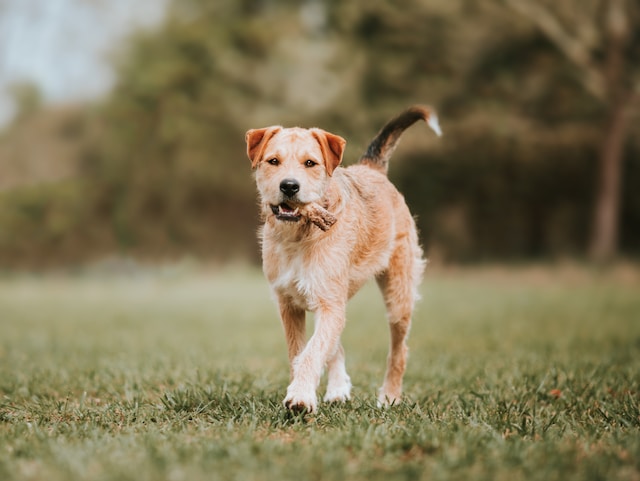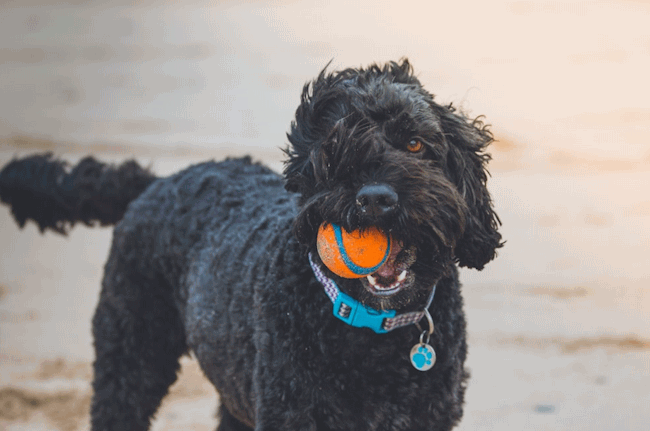Pet skunks are surprisingly common in North America and Europe. These stinky but cute animals are highly intelligent and playful. Like most animals, their temperament can vary but with proper socialization, they can be fun pets. Skunks have poor eyesight, but great noses. They use their noses to find food and explore their environment. Skunks only live a few years in the wild but can live up to ten years in captivity. The characteristic black and white skunk is the most common color but there are other varieties including the violet and the spotted skunk.

Care Requirements
Hygiene
Skunks require little for daily hygiene except for daily litterbox cleanings. But they do require monthly baths and weekly nail trims. Frequent trimming will help save furniture and flooring. Most skunk experts recommend using dog nail trimmers.
Diet
Diet is one of the trickiest aspects of skunk care. Because skunks are omnivores, they have a widely varying diet in the wild. Young skunks also need several meals a day while adults need one or two large, filling meals. They have a sensitive dietary system that needs large amounts of protein and fruits and vegetables. Fresh fruits and vegetables are a necessity. However, some vegetables like asparagus can cause seizures or dietary problems. Skunks usually require an all-natural diet although some experts say pet kibble can be part of their meal. They also require calcium and oils to keep them healthy. Their diet is extremely import as is their regular feeding time. If they miss a meal or have an inadequate number of various vitamins and minerals, they can have seizures. Young skunks also need several meals a day while adults need one or two large, filling meals. A yearly (or more frequently as needed) blood test is necessary to ensure that nutritional needs are met.
Enrichment
Skunks require many hours of playtime and interaction. This can take the form of toys, enrichment items like food puzzles, walks, or outdoor time. In the wild, skunks spend most of their time hunting for food. As pets, they can become destructive, digging into furniture, or tunneling into tight spaces. Homemade food puzzles can engage their minds and their paws. They are also able to learn tricks through food reinforcement and clicker training. Moreover, skunks can be taken outside on a harness or in a small outdoor run. However, they should be closely monitored when outdoors. Skunks have no homing instinct and can easily become lost. They can also easily escape many enclosures. Any outdoor enclosure must have a concrete base, as talked about later.
Enclosures
Skunks are best kept indoors or mainly indoors. Outdoor spaces are good for enrichment, but it is extremely difficult to build a skunk proof enclosure. Skunks are amazing diggers and need an enclosure with a concrete and wire mesh base. They also don’t do well in small spaces or cages long term. A skunk-proofed room is best, or an area sectioned off by baby gates. They can easily get caught in furniture or bite electrical wiring if left to roam free. They are also able to open cupboards, fridges, garbage cans, etc.
Benefits
Skunks can make wonderful companions. They are intelligent creatures with distinct personalities. When socialized early, they can bond with families and enjoy pets and playtime with humans. Unlike dogs, they are generally quiet creatures although they can use a range of chirps and squeaks to communicate. They can also learn tricks and commands with clicker training. Their waddling walk and curious nature make them engaging and entertaining for the whole family.
Considerations
Although skunks can make wonderful pets, they have complex needs. The primary consideration is their diet. There are few, if any, formulated foods available for skunks and their diet can be complex and delicate. Skunks require a yearly blood panel to determine if they are missing any key nutrients. Any missing nutrient can use immediate health issues to the animal. This yearly blood panel are quite expensive and adjusting a skunk’s diet may require multiple vet visits and trial and error.
Skunks also require lots of time. They need hours of entertainment each day. Their curious nature means that, left unattended, they can get into everything from food to blankets. They are known for digging into carpets, furniture, and stealing blankets or towel for their beds. They can also open cupboards and fridges so all areas of a home should be skunk proofed.
Furthermore, they are not domesticated and may bite if threatened. Unfortunately, because skunks can carry rabies, a skunk who has bitten a person will likely be euthanized. With proper training and early handling, a skunk bite is rare.
Restrictions
Many states have restrictions on who can own a skunk. Some areas prohibit ownership entirely while others require a permit or health certificate. All states not listed below ban the ownership of skunks as pets.
- Alabama, Michigan (permit required) – Legal to own if bred in state
- Florida, Kentucky, New Hampshire, New Jersey, New York, Ohio, Oklahoma, Pennsylvania – Legal with permit and/or health certificate
- South Carolina – Current ownership legal, new acquisitions are illegal
- South Dakota, Wyoming – No permit required.





